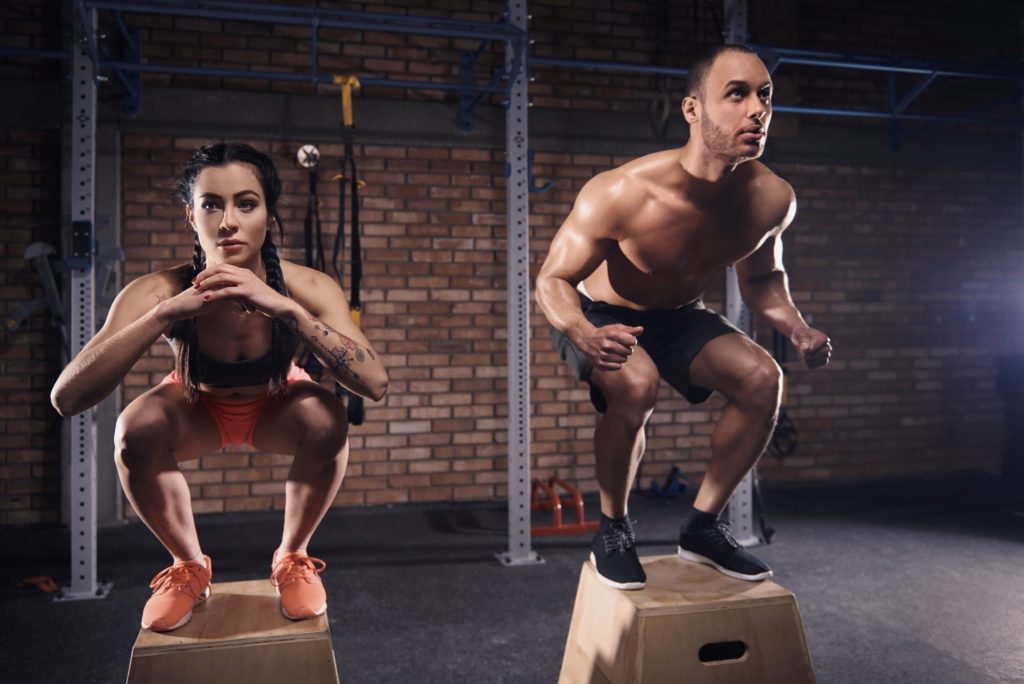This post is a guest submission. Please see our Disclaimer, Disclosures, & Affiliate Notice for details.
Vegan diets have increased in popularity in the past few years. More of us are aware of the poor conditions that animals are exposed to through factory farming, and we are finally starting to get over our cultural fixation on meat-eating.
But, many folks who have made the switch may have noticed that gaining weight is more difficult on a vegan diet. This is frustrating, but vegans can still gain weight and promote muscle growth, it just takes some getting used to. Here’s a quick guide to get you started.

Training Intensity and Volume
To gain muscle, you need a training routine that will provide your body with enough stimulation to cause growth. There are innumerable training programs and regimes that all claim to optimize your gains and help you build muscle. However, the program you choose to follow should depend on your goals and lifestyle. For this reason, there is no “right” program for everyone, but there are a few programs that might be best for different lifestyles:
- Lifting-is-Life: Jeff Nippard’s “PowerBuilding”
- Hybrid-Athlete: T-Nations’s Hybrid Athlete Program
- In-and-Out: T-Nation’s Boring But Big
- Athlete’s Program: The Athletic Build
These programs are all intense and demanding, so they may not be appropriate if you have major commitments or hobbies. If this is the case for you, then you should get in touch with a trainer who can help create a plan that is suited to your lifestyle but will still help you make gains.
Protein
There’s much controversy and debate amongst the bodybuilding community around how much protein you need to eat to maximize your muscle gains. As a vegan, you probably do need to increase your protein intake and need to consider varying your protein sources a little more often.
Recent research shows that the “optimal” amount of protein intake for muscle building needs to be around 1.62g per kg per day. So, if you weigh 85kg, then you probably need to eat around 137g of protein per day to maximize your muscle gains. However, there’s a caveat here: unless you’re scrupulous about recording your intake, you’re probably not eating as much as you think. So, seeing as there are no reported issues from taking in slightly more protein than 1.62g/kg/day, then you can consider experimenting with slightly higher levels.
As a vegan, you also need to vary your protein intake. That’s because not all “protein” sources are equal, and the body has a harder time using some protein sources than others. So, while ingredients like tofu or other soy-based foods are delicious, you need to ensure that you are not over-reliant upon them, and should look to balance your protein intake through nuts, legumes, and other sources.
Caloric Surplus
Hopefully, you already know that you need to be consuming a caloric surplus to gain weight. This is a pretty straightforward idea, as the body needs an excess of energy to start putting on fat or/and muscle. Calories are the best way to track energy, meaning a caloric surplus should be your first step in gaining weight.
But, how much of a surplus do you need to effectively gain weight? Well, there is no single, debate-ending answer. Ultimately, the decision about how much of a surplus you enter is dependent upon your metabolism, activity level, and preferences. If you want to stay lean while gaining at a slower rate, then you need less of a surplus — around 300 calories per day. But, if you want to look big quick, then you might want to invest your time and energy into bulking at around a 500-600 calorie surplus per day.

Supplements
There are thousands of supplements available to you as a vegan that make it easier to gain weight and build muscle. As always, you need to be careful about the supplements you choose to take, as it’s easy to be deceived by clever marketing schemes that promote untested, or ineffective supplements at a high cost.
At the most basic level, it may be a good idea to supplement your diet with creatine. A recent study found that vegetarians benefitted from adding creatine monohydrate into their diet. This is because creatine monohydrate is found naturally in meat products, which vegans and vegetarians have cut from their diet. Supplementation of creatine can help increase lean mass and may help you get through demanding workouts.
It’s also worth noting that many of us are suffering from malnutrition or a hormone imbalance without realizing it. This might be as simple as a Vitamin D deficiency during the winter months, or something as serious as low testosterone levels. This is an issue, as significantly low testosterone levels make it all but impossible to gain weight. You can try natural testosterone-boosting behaviors like increasing the amount of sleep you get or can consider a supplementation after consulting a medical professional.
Track with Data
You are extremelyunlikely to gain weight if you do not track your diet, physical performance, and health data. This is because we are all terrible at estimating the amount of protein, calories, and nutrients we take in every day and are even worse at estimating strength gains over time.
Tracking health data can also ensure that you maintain your overall health, as medical professionals use health data to track vitals and uncover any underlying issues that might be undermining your efforts to gain weight. This will include anything from activity levels to metabolism and vital signs. Not all of this data will help promote weight gain, but it will ensure that you don’t get sidetracked by a lingering illness or a hormone imbalance.
Conclusion
As a vegan who wants to gain weight, do not try to reinvent the wheel or get lost following fad diets and dubious training regimes. Instead, stick to a simple recipe of consistent, intense training, deep sleeping to promote muscle growth, and ensure that you eat enough calories and protein to promote muscle growth over time.
Indiana Lee is a writer and journalist from the Pacific Northwest with a passion for covering workplace issues, social justice, environmental protection, and more. In her off time you can find her in the mountains with her two dogs. You can follow her work on Contently, or reach her at [email protected] or on Twitter @indianalee3

